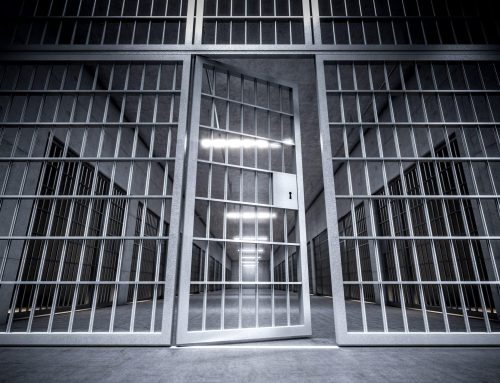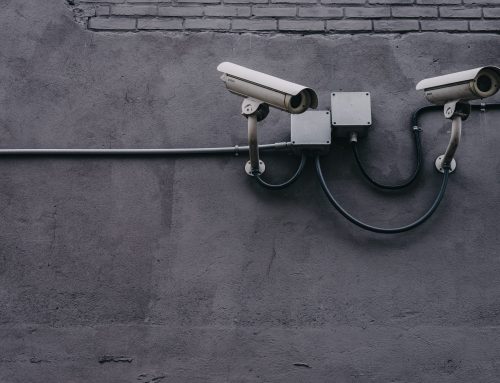The importance of warehouse security cannot be emphasized enough, especially for organizations where efficiency and precision are the key to successful operations. For business owners, the warehouse is more than just a storage space — it’s the central hub of operations, housing valuable assets, inventory, and other essential resources that drive their entire supply chain.
Recognizing the vital role warehouses play in a business’s smooth operation, it becomes crucial to prioritize and invest in robust security measures. The consequences of neglecting warehouse security can be significant, resulting not only in financial losses but also potential harm to a company’s reputation and operational integrity.
By investing in warehouse security measures, business owners can not only secure their assets, but make their brand succeed.
Why You Need to Think About Warehouse Security

Warehouse security is a critical aspect that demands thoughtful consideration from businesses. The warehouse, often serving as the nerve center of operations, holds not only valuable assets and inventory but also crucial components of the entire supply chain.
Neglecting warehouse security exposes businesses to severe financial losses. Theft, unauthorized access, and security breaches can result in significant monetary setbacks, impacting the bottom line. These incidents can damage a company’s reputation, affecting its standing in the industry and decreasing customer trust.
The ripple effects of compromised warehouse security extend beyond immediate financial consequences. Disruptions in the supply chain due to theft or unauthorized access can result in delays, stockouts, and increased operational costs. In a fiercely competitive business landscape where customer expectations are high, any compromise in warehouse security can lead to cascading effects on overall business performance.
Assessing Vulnerabilities: A Warehouse Security Audit
As businesses evolve in the face of dynamic challenges, ensuring a secure warehouse is critical. Conducting a comprehensive warehouse security audit to assess weak points and blind spots is the first step in creating a more secure environment.
Understand the scope – Before diving into a security audit, it’s important to understand the scope of your undertaking. Consider how large your warehouse is, not just physically but also digitally. Be sure to note potential weak points in access controls, surveillance, inventory management, and data protection.
Physical security checkpoints – Evaluate the effectiveness of access controls, such as locks, gates, and security personnel. Ensure that surveillance systems cover all critical areas to minimize blind spots. Make sure there is enough lighting and signage to deter unauthorized access.
Inventory management systems – The point of a warehouse is to house inventory. You should implement checks and balances within your inventory management systems to quickly detect discrepancies. Utilize technology such as RFID tags or barcodes to enhance tracking and minimize the risk of theft or misplacement.
Cybersecurity assessment – Many warehouses today will not function without the technology behind it. Employ firewalls, encryption, and schedule regular system updates to protect your warehouse against potential cyber-attacks that could not only take down your system, but leak customer and private data.
Advancing Warehouse Security with Technology

In the ever-evolving landscape of warehouse management, leveraging cutting-edge technology is a strategic move for enhancing security measures. The integration of advanced technologies not only fortifies defense against potential threats but also brings efficiency and precision to warehouse operations.
Here are some key technological advancements that can transform your warehouse security:
Surveillance systems
Modern businesses are embracing advanced technologies to fortify warehouse security. Surveillance systems, for instance, have gone beyond traditional CCTV setups. High-definition cameras with motion sensors and analytics software provide real-time monitoring and automated threat detection. These systems incorporate machine learning algorithms that enable them to identify and respond promptly to suspicious activities.
Access control systems
Biometric authentication, smart cards, and RFID technology have revolutionized access control within warehouses. These systems ensure that only authorized personnel can access specific areas, minimizing the risk of theft or unauthorized entry. Integrating access control with employee management systems enhances visibility and control.
Drone technology
Drones offer a dynamic approach to warehouse security by providing aerial surveillance and monitoring. Equipped with cameras and sensors, drones can patrol large areas quickly, identify potential security breaches, and capture real-time footage for analysis.
IoT sensors
The Internet of Things (IoT) plays an important role in warehouse security. Smart sensors that are embedded in inventory, equipment, and even the facility itself provide real-time data on movement, temperature, and environmental conditions.
Cybersecurity measures
As warehouses become increasingly digitized, safeguarding against cyber threats is crucial. Implementing robust cybersecurity measures, including firewalls, encryption, and regular security updates, protects sensitive data and prevents unauthorized access to digital systems.
Cell phone detection
Advanced systems can now detect and track mobile devices within your warehouse. These phone detectors add an extra layer of security by addressing concerns related to unauthorized photography or recording.
Artificial intelligence (AI)
AI and machine learning algorithms analyze vast amounts of data to detect patterns and anomalies. In warehouse security, these technologies can predict potential threats based on historical data, enabling proactive decisions. AI-driven analytics also contribute to more accurate threat assessments.
Fostering a Security-Conscious Culture for Your Warehouse Employees

While you implement security measures for your warehouse, one of the most important parts is creating a security-conscious culture for your employees. Instilling a sense of responsibility and awareness among warehouse personnel is crucial to preventing security breaches. This involves comprehensive training programs that educate all personnel on the importance of security measures, potential risks, and their individual roles in maintaining a secure environment.
Leadership should play a pivotal role in shaping this culture by leading by example, consistently adhering to protocols, actively participating in training programs, and prioritizing security in decision-making processes. Incorporating continuous education on emerging threats keeps employees informed and adaptable in their security practices.
Collaboration between warehouse personnel and dedicated security staff should also be promoted, creating clear communication channels for reporting security concerns. The ultimate goal is to instill a sense of ownership and engagement among employees, creating a positive reinforcement loop that enhances the overall security of the organization.
Evolving Strategies for Warehouse Security
Warehouse security is imperative for business owners because it is intricately tied to the resilience, credibility, and success of the entire organization. Proactive investment in robust security measures, including both physical and digital aspects, is not just a precautionary step but a strategic necessity.
It is evident that warehouses play a pivotal role in the seamless functioning of a business. This importance underscores how critical it is to consider various security measures, including advancements like phone detection from Cellbusters. Fortifying your warehouse security is an investment in the long-term sustainability and prosperity of the business.







